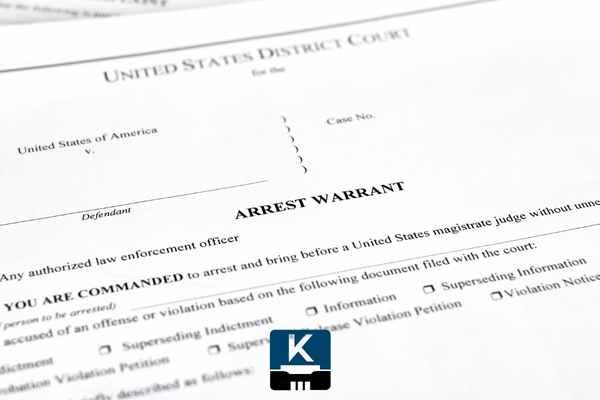Alternative Sentencing Options for Drug Charges in Chicago
2025-04-23T13:15:00
If you or someone close to you has ever been arrested in Illinois, you need to check if there is a warrant out for your arrest. Type your full legal first and last name into the search bar above to find out. You may be surprised at what comes up!

In criminal law, an arraignment is the formal proceeding at which a defendant enters his plea to the criminal charges against them made by a law enforcement official. At the arraignment, the judge determines if there is sufficient evidence to hold the accused person until trial. Arraignments are held in open courtroom proceedings, where the public may attend. After determining the sufficiency of the evidence, the judge sets bail and schedules further hearings. This all can be a scary experience.
When people hear the term, ‘warrants,’ they often assume that it refers to a type of legal document used to obtain permission to conduct a criminal investigation. In reality, however, an ‘arraignment’ (also known as a ‘first appearance’) is a court proceeding held before a judge after an individual has been charged with a crime. At the arraignment, the defendant enters a guilty or not guilty plea to the charge(s). Once the defendant pleads guilty, he or she is formally placed under the court’s jurisdiction and a trial date is set.
During the course of the trial, the prosecution presents evidence against the defendant and the defense presents any exculpatory evidence. After hearing all of the evidence presented, the jury decides whether the defendant is guilty of the alleged offense.

If found guilty, the defendant is sentenced based on his or her prior record and the severity of the charges. There are many different types of outstanding warrants (like active arrest warrants) that a defense attorney will go over at their law firm. Each type of warrant has a different background to what a law enforcement officer can do, the law enforcement agency will help.
A cost warrant is an order issued by a judge requiring someone to pay a fine or fees before they can leave jail. A cost warrant may also be used to collect unpaid child support payments. In some states, a person who owes a debt must pay a fee called a “cost” before being released from custody.
A bench warrant is an official warrant for someone’s arrest. It is usually used when they fail to show up in court after having been charged with a criminal offense, or when new charges are brought against them. Usually, the judge issues a bench warrant by setting a cash or bond deposit (bond). If you’re facing charges, it’s important to talk to an experienced Chicago criminal defense lawyer and a bail bondsman to figure out what your best option is.
A search warrant is a court order allowing law enforcement officials to enter private property and conduct searches without having to obtain permission from the owner first. It is not an “arrat” warrant; however, it may be used in conjunction with an arrat warrant.
There is currently no single, centralized database where people can check whether they’re wanted by law enforcement.
If you miss court, and if a judge issues a bench warrant, you may receive a notice from the court or from your lawyer about missing court and having to reschedule a hearing.
A warrant against you could be issued for many different reasons. For instance:
A skilled criminal attorney may be able to represent you in misdemeanor cases, but not in felony cases or DUI cases.
You must appear in court with an experienced criminal defense lawyer if a judge issues a bench warrant for your arrest. If you fail to show up, you will be arrested and held in jail until your trial date.
As soon as you’re taken into custody and questioned by law enforcement, you must be told the above-mentioned Miranda rights.
You may not be able to stop them from using anything you say against you in court, but if they force you to give incriminating information by threatening you, by persistent questioning, or by some other form of coercion, you can tell them to stop doing so.

You have the absolute right to talk to your lawyer and any members of your immediate family about your case. In addition, if you are being held in jail, you can call the police station where you were arrested and ask them to inform your parents or guardian. You also have the ability to call the American consulate or the nearest U.S. embassy. These people can assist you in getting a good lawyer, arranging bail, and contacting your relatives back home.
If you’re arrested, you have a right to get an itemized receipt for everything that was taken from your possession.
You have a right not to be booked for any reason within a reasonable time frame. A booking is when an arrest occurs in a record known as the “arrest blotter”.
If your detainment goes beyond a reasonable period of days without booking, your lawyer may go to a magistrate and get them to issue a writ of Habeas Corpus. A writ of Habeas corpus is an order from a magistrate instructing the police to bring you into custody for a hearing at which a magistrate decides if you’re being held lawfully.
Contact a criminal defense attorney from Ktenas Law for a free consultation about search warrants and active warrants. Call (312) 756-8652 for a free consultation discussing the legal options of the alleged crime and criminal activity that there is a warrant search about. You can also contact the law offices for legal advice on an online contact form to speak to a defense lawyer about the crime in progress and the entire warrant.

2025-04-23T13:15:00

2025-04-07T11:50:40

2025-03-24T11:55:03

